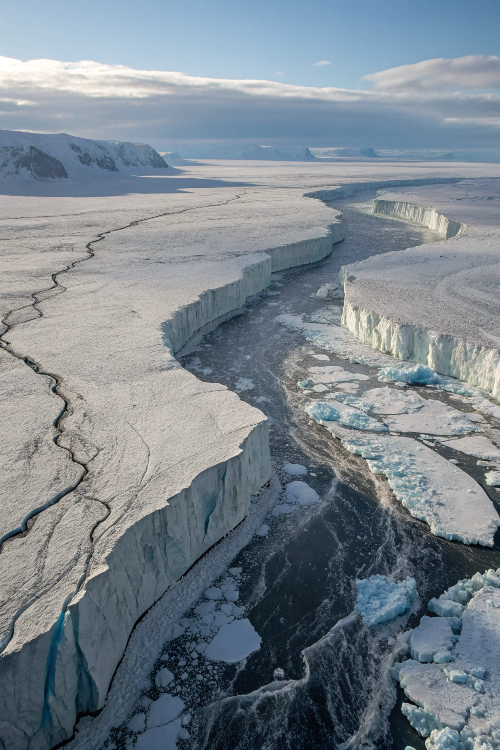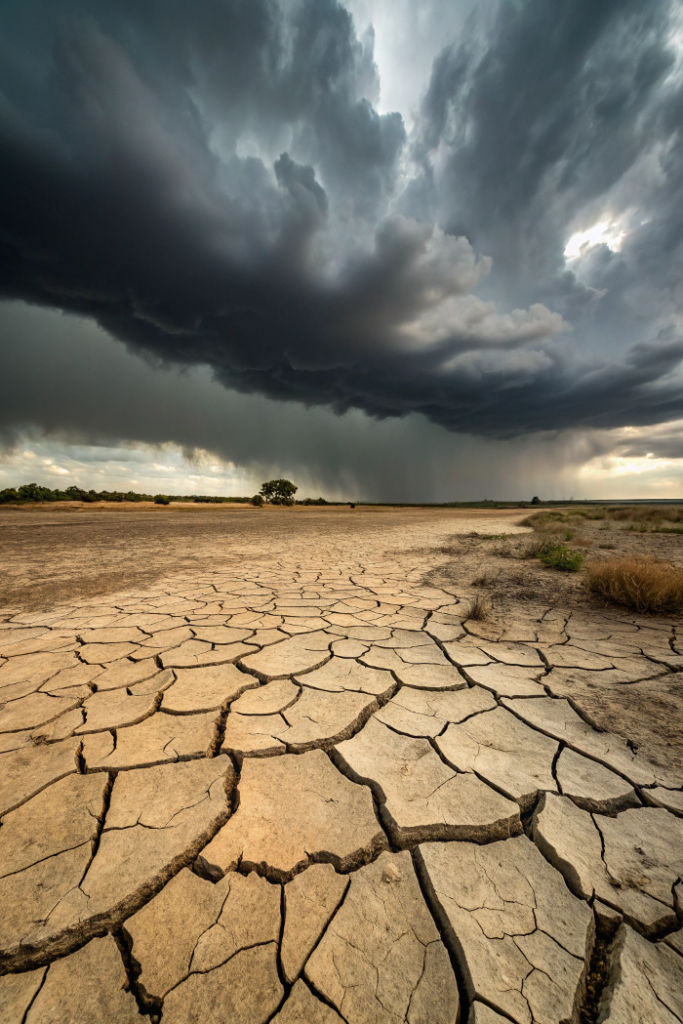Imagine our planet as a gigantic and complex puzzle, where each piece represents an ecosystem, a society, a natural process. For a long time, these pieces fit together harmoniously, creating a vibrant and balanced picture. But in recent decades, an invisible, but powerful, force has begun to upset this balance, throwing the pieces out of whack and threatening the whole picture: climate change.
To understand its global impact, we need to take a close look at how this force is affecting every corner of our planet. Think of the oceans, vast bodies of water that cover most of the earth’s surface. Rising temperatures are causing coral bleaching, those vibrant reefs that are home to an incredible diversity of marine life. Melting poles and thermal water expansion are raising sea levels, threatening coastal communities and small island states with flooding and disappearance. In addition, the absorption of carbon dioxide is acidifying the oceans, making life difficult for many marine species with shells and calcium carbonate skeletons.
Let’s turn our gaze to the poles, those icy expanses that act as our planet’s thermostats. Rising temperatures are melting glaciers and ice sheets at an alarming rate, releasing huge amounts of fresh water that contribute to sea level rise and alter ocean currents, those large underwater rivers that regulate the global climate. Ice loss also affects local wildlife, such as polar bears that rely on icy shelves for hunting.
“Understanding the global impact of climate change is like assembling a somber puzzle, where each piece reveals a worrying consequence. However, this knowledge should not paralyze us, but rather drive us to action.”
Let us now look at the continents. Climate change is intensifying extreme weather events. Heat waves are more frequent, long-lasting and dangerous, putting human health and ecosystems at risk. Droughts are prolonged, depleting freshwater reserves and affecting agriculture and food security. Torrential rains and storms are more intense, causing devastating floods and landslides. Wildfires, fueled by heat and dryness, sweep through vast swathes of forests, releasing even more greenhouse gases into the atmosphere.


The impact of climate change is not limited to the natural world; it also profoundly affects human societies. Water and food shortages can lead to conflict and migration. Sea level rise and extreme weather events displace entire populations, creating climate refugees. Human health is threatened by the rise of vector-borne diseases, heat stress, and air pollution exacerbated by fires. Economies suffer massive losses due to natural disasters, declining agricultural productivity, and damage to infrastructure.
Even biodiversity, that incredible web of life that sustains our planet, is under unprecedented pressure. Many species cannot adapt quickly enough to changes in their environment and face extinction. Altered habitats, changes in migration patterns, and intensified diseases threaten the intricate web of interactions that keeps ecosystems functioning.
Understanding the global impact of climate change is like putting together a grim puzzle, where each piece reveals a troubling consequence. However, this knowledge should not paralyze us, but spur us to action. By understanding the magnitude of the challenge, we can make informed decisions and work together to mitigate its effects and build a more resilient future.
Concluding with key ideas:
The loss of biodiversity is a serious consequence: The inability of many species to adapt puts the stability of ecosystems at risk.
Climate change is an interconnected global phenomenon: Its impacts are felt in every corner of the planet and affect natural and human systems.
Extreme weather events are intensifying: Heat waves, droughts, floods and storms are becoming more frequent and severe.
The oceans and the poles are key indicators: Their changes (sea level rise, acidification, melting) have far-reaching consequences.
Human societies are vulnerable: Climate change threatens food security, health, social stability, and the economy.

Deja un comentario